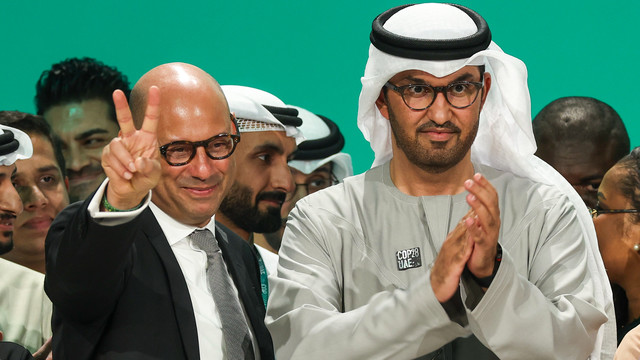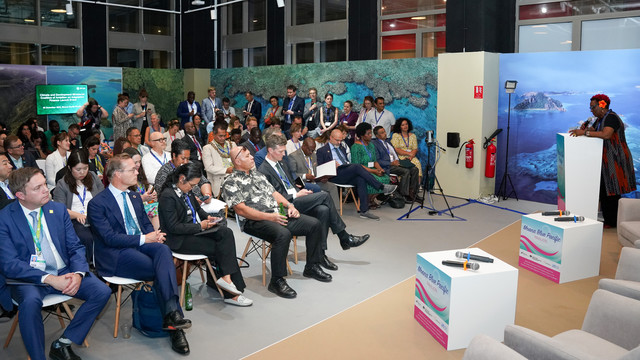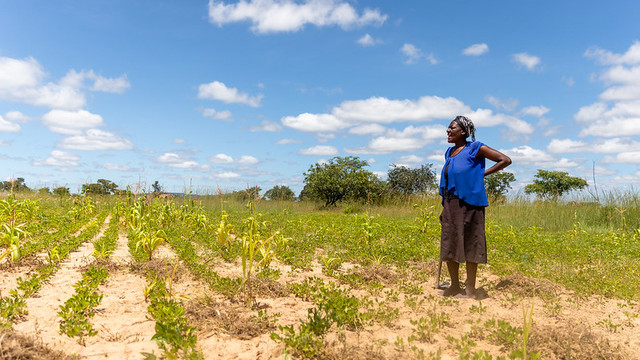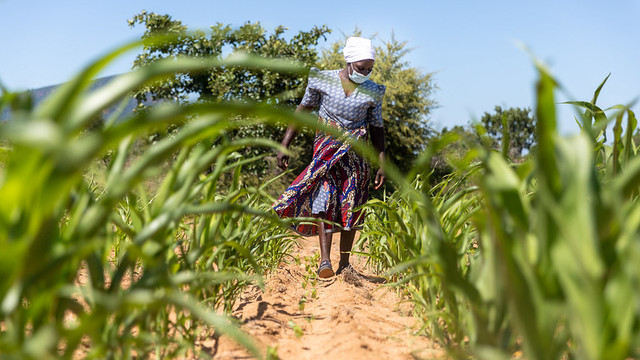LIFE-AR at COP28: new commitments accelerate efforts for climate adaptation and resilience in the least developed countries
The 2023 UN climate negotiations (COP28) saw the LIFE-AR number of countries leading the way in supporting a shift away from 'business-as-usual' approaches to climate adaptation and resilience rise to ten. And there was a new financing commitment from Canada.

Marie-Orléa Vina, Madagascar’s Minister of Environment and Sustainable Development, signs her government up to participate in LIFE-AR (Photo: LIFE-AR/IIED)
The Least Developed Countries (LDC) Initiative for Effective Adaptation and Resilience (LIFE-AR) aims to support a shift away from 'business-as-usual' approaches to a more effective and ambitious climate response.
LIFE-AR is an LDC-led initiative, which serves as one of the primary vehicles for delivering the LDC 2050 Vision for a climate-resilient future.
At COP28 in Dubai, four new countries – Benin, Madagascar, Nepal and Senegal – officially signed up to LIFE-AR. This will see them participating in the initiative alongside the initial group of frontrunner countries – Bhutan, Burkina Faso, Ethiopia, The Gambia, Malawi and Uganda – pioneering approaches to deliver long-term resilience to climate impacts through locally led adaptation.
LIFE-AR also welcomed a new donor, as the government of Canada committed C$5 million (US$3.7 million) over three years, joining the governments of the US, UK and Republic of Ireland as core donors to the initiative.
"Least developed countries are both on the frontline of the climate crisis and the strongest advocates for addressing climate change, pollution and biodiversity loss, and the need for more cooperation," said the Honourable Steven Guilbeault, Minister of Environment and Climate Change, Government of Canada.
"Canada’s announcement during COP28 of C$5 million to LIFE-AR is about partnerships, and building capacity for transformational, locally led adaptation and sustainable development practices. This means more support for those that need it the most. We applaud LIFE-AR for doing important work to help LDCs get direct access to climate finance funds."
At a flagship event for LIFE-AR hosted in the LDC Pavilion, updates on implementation progress were shared by frontrunner countries Malawi, Ethiopia and Uganda, alongside a passionate keynote address from the Ugandan climate justice advocate Vanessa Nakate.
This session was moderated by LDC Group chair Madeleine Diouf Sarr, and featured additional speakers from the UK government, Green Climate Fund and Asian Development Bank.
LIFE-AR is piloting new models for building expertise and capacity within LDCs, in support of the ambition that at least 70% of finance flows go towards local action on the ground, rather than being externally driven.
This is essential for building long-term resilience to climate impacts within the LDCs, to ensure they have access to the skills and resources that will be required to tackle the escalating impacts from climate change.
Despite pledges at COP26 in Glasgow to double adaptation finance support from 2019 levels by 2025, the latest figures show the trend going in the wrong direction, with a year-on-year decline of 14%.
The UN’s 2023 Adaptation Gap Report estimates that actual needs to manage the impacts of climate change in developing countries this decade is between US$215-387 billion and likely to escalate beyond 2030, far beyond current adaptation finance flows of just $21.







